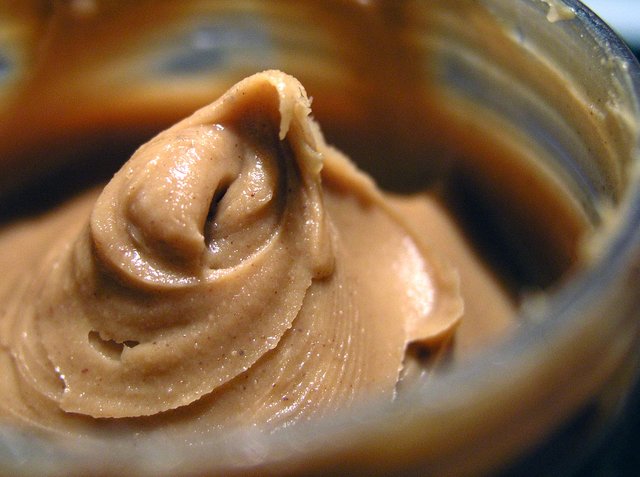Peanut Butter: Benefits and Damage
Peanut butter has many health benefits because of its nutrient richness, but it may carry some disadvantages.
Peanuts are legumes rich in protein, fat and low in carbohydrates. Let us know about its pros and cons as follows:

https://en.wikipedia.org/wiki/Peanut_butter
1 - source of energy and nutrients
Peanut Butter provides us with three essential elements: proteins, carbohydrates, fats. Each 100 grams contains:
20 grams of carbohydrates, which make up 13% of the calories they contain, of which 6 fibers.
25 grams of protein, which makes up 15% of the calories it contains, which makes it a high source of protein compared to other vegetarian foods.
50 grams of fat, which makes up about 72% of calories.
It is also a source of energy, providing about 588 calories per 100 grams of peanut butter.
2 - rich in vitamins and minerals
Peanut butter is rich in a range of vitamins and minerals, 100 g of which provides us with:
45% of the daily requirement of vitamin E.
67% of the daily requirement of vitamin B3 (niacin).
27% of the daily requirement of vitamin B6.
18% of the daily requirement of folic acid.
39% of the daily requirement of magnesium.
24% of the daily requirement of copper.
73% of the daily requirement of manganese.
Peanut butter also contains no significant amount of vitamin B5, iron, potassium, zinc and selenium.
- Disease resistant materials
Peanut butter contains a range of biologically active nutrients, which can have some health benefits according to studies.
It contains antioxidants, such as P-coumaric acid, which may reduce the risk of stomach cancer.
It also contains resveratrol, which may reduce the risk of cardiovascular disease.
Containing small amounts of Q10, an important food component in metabolism and energy production. It contains simple amounts of beta-sitosterol, which may have anti-cancer properties.
Damages and disadvantages of peanut butter
Although peanut butter is a rich source of protein, it is not a source of essential amino acids such as lysine. So eating them alone will not suffice and you should eat other sources of protein from rich animal foods such as meat or cheese.
50% fat in peanut butter is unsaturated and 20% saturated. About 30% remains of unsaturated fat, most of which are formed by omega-6 and linoleic acid, which may have damage to the body. Excessive intake of omega-6 fatty acids in the diet is associated with inflammation and an increased risk of cardiovascular disease.
100 grams of peanut butter contains 588 calories. But they are not considered nutritious compared to low calorie vegetarian foods such as spinach or cauliflower.
A possible source of aflatoxin is toxic, Sudanese peanut grows underground, which may make it susceptible to fungal infection and a source of a carcinogenic toxin known as Aflatoxins. Which may be linked to liver cancer, stunted growth in children and mental retardation.
Our advice
Despite the positives of peanut butter, they carry some negatives.
So we advise that a small amount of moderate amounts are taken to collect all the benefit away from any damage.